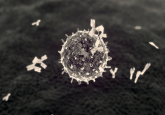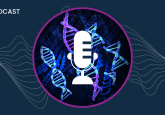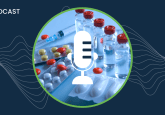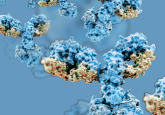Addressing the key challenges and questions when deciding between old vs new technologies: a podcast with Franklin Spriggs (KCAS)
As part of our focus, In the Zone: old vs new technologies, we present this podcast where we talk to Franklin Spriggs (Director of Large Molecule Services, KCAS) about his experience with investing in different technologies and the key questions that need to be addressed when making any decision between different technologies.
 Franklin Spriggs received his BSc in microbiology from Ohio University (OH, USA) in 1998. Upon graduation he joined CurGen Corp (CT, USA), a small biotechnology company working in the area of genomics and protein binding interactions. In 2005, Franklin left New England and headed to Thousand Oaks to join Amgen Inc. (CA, USA). While at Amgen, Franklin had the opportunity to learn and build expertise in regulated large molecule bioanalysis. Late 2007 saw Franklin leave California and travel back to the northeast to join Pfizer Inc. (NY, USA) in Groton Connecticut. While at Pfizer he applied the knowledge he had learned while at Amgen and began to participate in the American Association of Pharmaceutical Sciences (AAPS) where he has held positions in both the BIOTEC and Regulatory Sciences sections. In 2015, Franklin received his MSc in Regulatory Affairs and Quality Assurance from Temple University (PA, USA) before transitioning out of the pharmaceutical industry to the world of the Contract Research Organization (CRO). Previous to KCAS LLC (KS, USA), Franklin spent a 2 year tenure at AIT Bioscience (IN, USA), another CRO in Indianapolis as the Ligand Binding Assay Group Leader.
Franklin Spriggs received his BSc in microbiology from Ohio University (OH, USA) in 1998. Upon graduation he joined CurGen Corp (CT, USA), a small biotechnology company working in the area of genomics and protein binding interactions. In 2005, Franklin left New England and headed to Thousand Oaks to join Amgen Inc. (CA, USA). While at Amgen, Franklin had the opportunity to learn and build expertise in regulated large molecule bioanalysis. Late 2007 saw Franklin leave California and travel back to the northeast to join Pfizer Inc. (NY, USA) in Groton Connecticut. While at Pfizer he applied the knowledge he had learned while at Amgen and began to participate in the American Association of Pharmaceutical Sciences (AAPS) where he has held positions in both the BIOTEC and Regulatory Sciences sections. In 2015, Franklin received his MSc in Regulatory Affairs and Quality Assurance from Temple University (PA, USA) before transitioning out of the pharmaceutical industry to the world of the Contract Research Organization (CRO). Previous to KCAS LLC (KS, USA), Franklin spent a 2 year tenure at AIT Bioscience (IN, USA), another CRO in Indianapolis as the Ligand Binding Assay Group Leader.
Questions:
1 Considering large molecule analysis, how do you decide between different technologies? [Time – 1:50]
2 Describe how KCAS is involved in these decisions and the technologies that you utilize? [Time – 5:00]
3 What are the key advantages and challenges you face with the different technologies? How do you address and overcome these issues when choosing the right technology for a project? [Time – 8:00]
4 How far do regulations impact decisions to utilize these technologies? [Time – 18:40]
5 How would this apply to anti-drug antibody studies? [Time – 20:40]
6 Could you give your thoughts on the impact old vs new technology decisions are having on the industry, specifically how they might occasionally adversely affect the outcomes of projects when old vs new technologies are being considered? [Time – 23:15]
7 Concluding comments [Time – 26:30]






